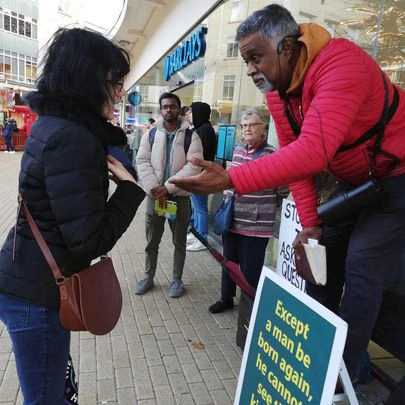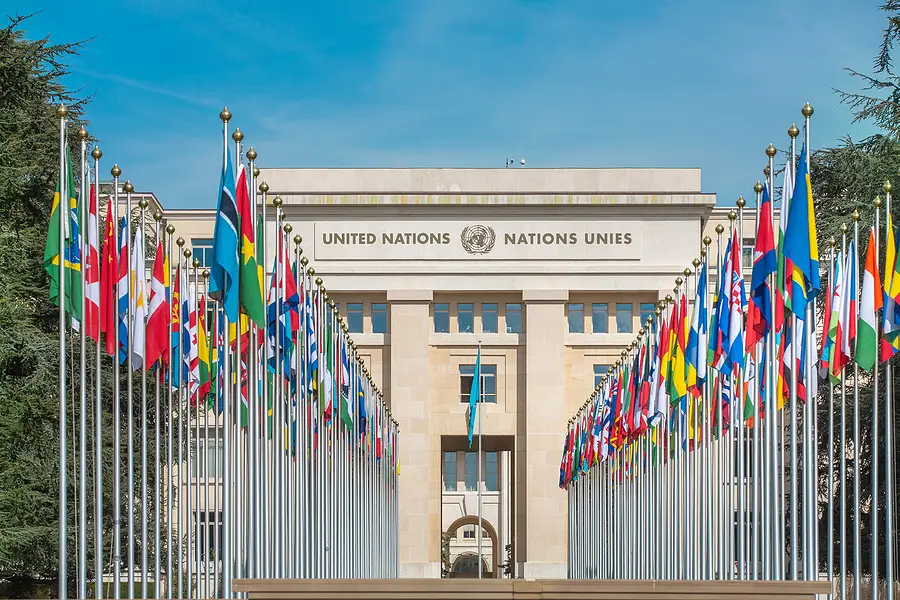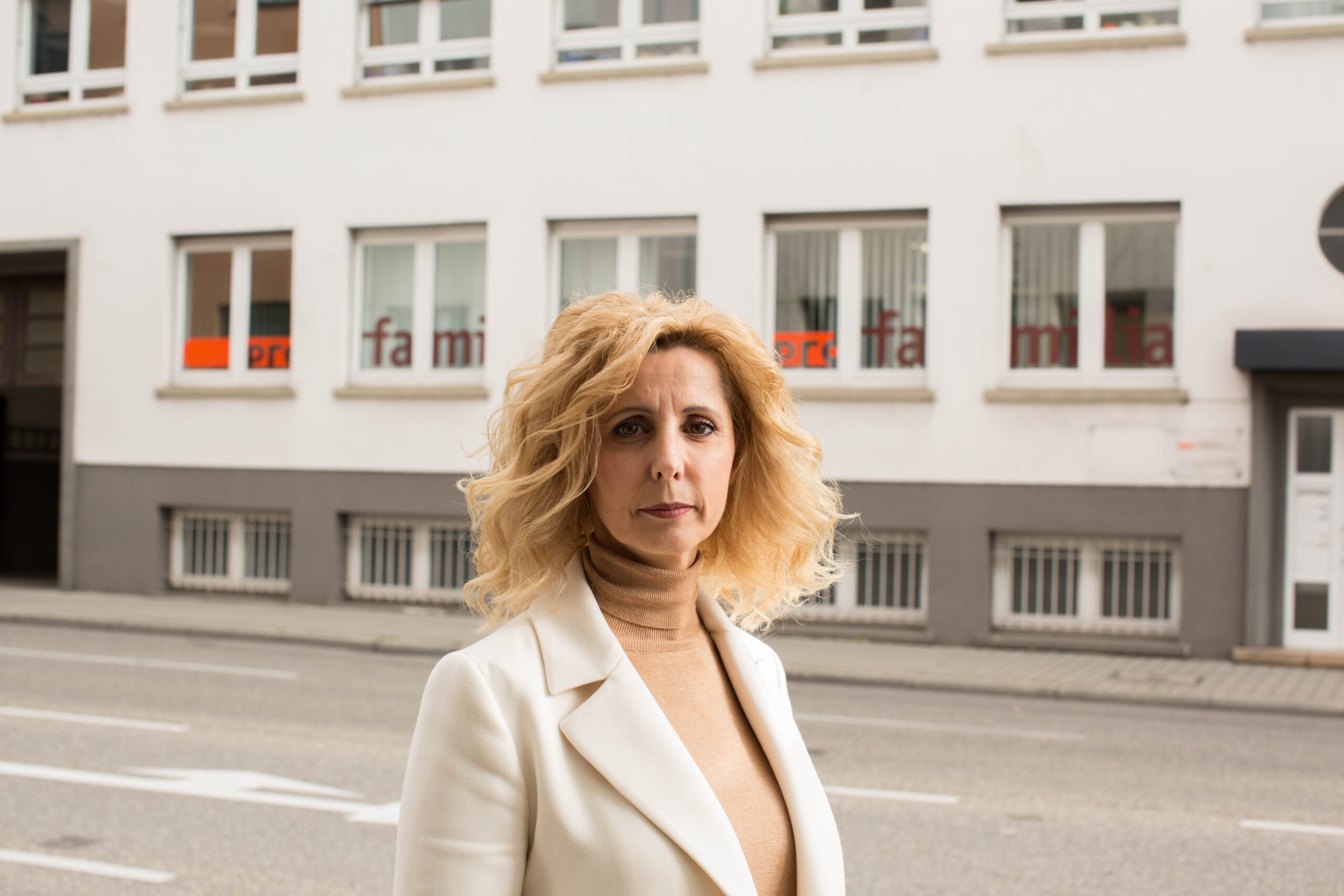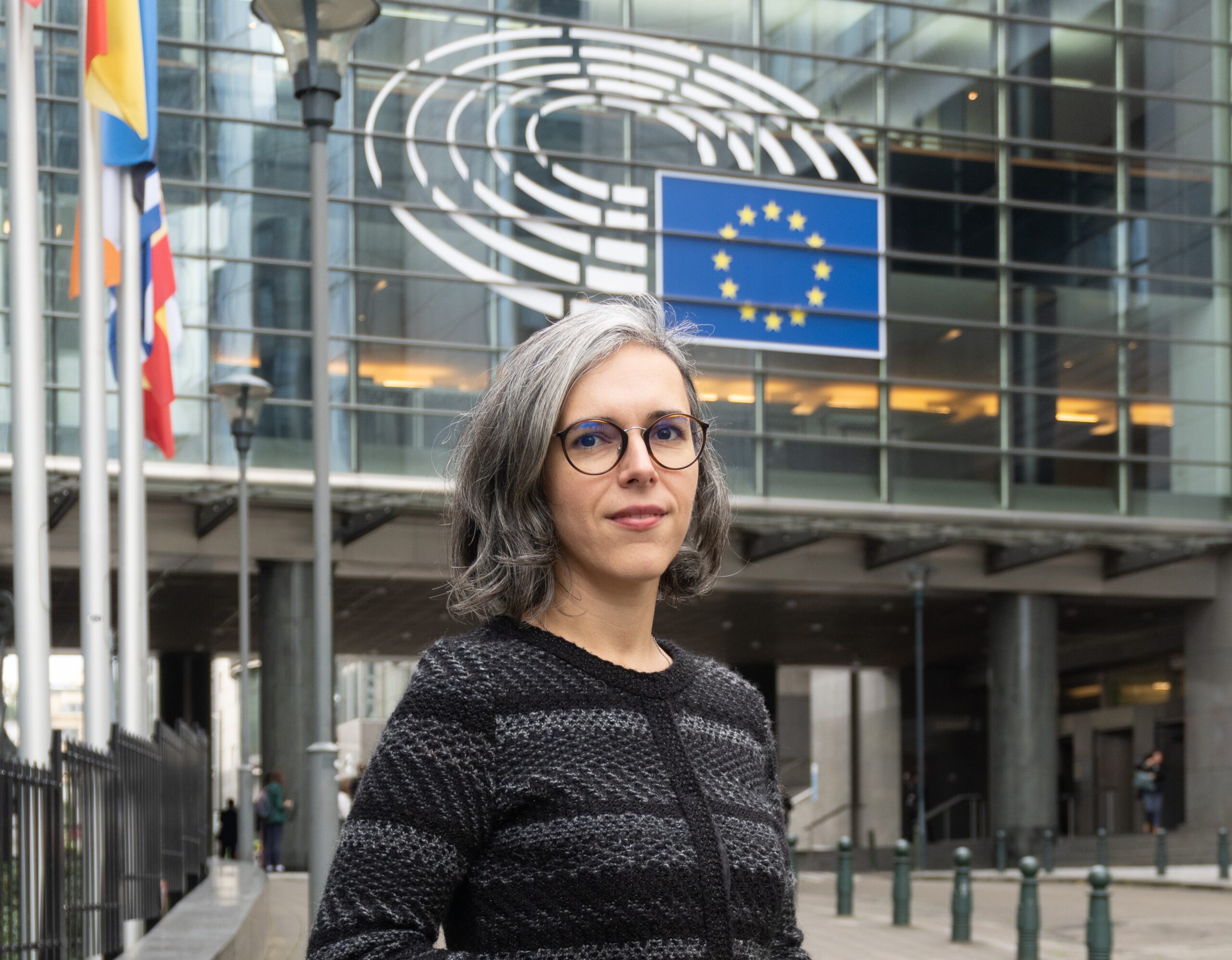- Christian leader receives settlement from police who wrongfully tried to ban him from criticising alternative worldviews, such as atheism and Islam
- Avon & Somerset Police concede their restrictions on expression were “disproportionate” after successful challenge backed by ADF International and the Free Speech Union
BRISTOL (27 February 2024) – Avon & Somerset Police Force have conceded their restrictions on free speech were “disproportionate” after unlawfully censoring Christian leader, Dia Moodley, a Bristol-based pastor and father of four.
The police force had issued a warning notice to Moodley, who has engaged in occasional street evangelism for the past five years, which forbade him from, inter alia, “passing comments on any other religion or comparing them to Christianity” and “passing comments on beliefs held by Atheists or those who believe in evolution”.
A claim for damages was backed by ADF UK and Free Speech Union, who instructed solicitors from Ai Law.
“It isn’t for the police to decide which religions or worldviews can be free from criticism. When I preach, I am committed to speaking about the good news of Christianity in love, grace, and truth – but that doesn’t mean that I will never say something that others may disagree with. The nature of a free and democratic society is that we can speak publicly about our beliefs.
Thankfully, with support from ADF UK and the Free Speech Union, I have received some measure of justice after having been wrongfully silenced by authorities. But this creeping culture of censorship is detrimental to all of us in society, whatever we believe, and we must challenge it wherever we see it,” commented Dia Moodley, who successfully challenged police after they forbade him from speaking freely about his Christian beliefs – and comparing them to other religious views – in public.
A breach of free speech
Moodley had initially reached out to the Avon & Sommerset Police Force after being the victim of several incidents of racial abuse, at the advice of Bristol-based charity Stand Against Racism and Inequality. Officers began to regularly attend Moodley’s public preaching in order to protect both the pastor and his congregation.
In October 2021, Moodley arranged a meeting with the neighbourhood police force in order to maintain good working relations. However, at this meeting, the pastor was served with the warning notice, which he refused to sign.
In addition to forbidding criticism of religions other than Christianity, the warning notice further encroached on Moodley’s right to freedom of expression by banning him from “delivering a sermon or religious address at a time or place that has not had prior consent and approval of Avon & Somerset Constabulary.”
Backed by ADF International and the Free Speech Union, Moodley successfully challenged the Chief Constable of Avon and Somerset Police for discrimination on religious grounds and for breaching his ECHR rights to freedom of thought, conscience and religion; freedom of expression; and freedom of assembly and association.
Commenting on the case, Bryn Harris, Chief Legal Officer for the Free Speech Union, said: “The state does not hold a monopoly on truth and the ability to discuss and debate ideas, including religious ideas, is the lifeblood of any genuinely free society. Yet, repeatedly, we see this principle violated by unaccountable police officers and local councils who aggressively pursue their own ideological causes rather than using scarce public resources to tackle real crime.”
Upon receiving news of the settlement, Jeremiah Igunnubole, Legal Counsel for ADF UK, said, “Dia Moodley’s case exposes a clear double standard in British policing when the issue concerns the expression of core beliefs; particularly Christian beliefs. Bristol authorities unabashedly requested prior review of Dia’s sermons and banned him from speaking about any other religion – including atheism. This blatantly restricted his freedom of religion and speech in an attempt to redefine established British values in accordance with their own ideals.
Whilst we welcome the police force’s admission that their actions were disproportionate, it is crucial that the laws permitting such flagrant violations of freedom of speech are urgently addressed to prevent the need for Dia and others like him from being embroiled in years of legal proceedings only to defend what should have instantly been recognised as their lawful, peaceful and constitutional rights to speak freely in public.”












